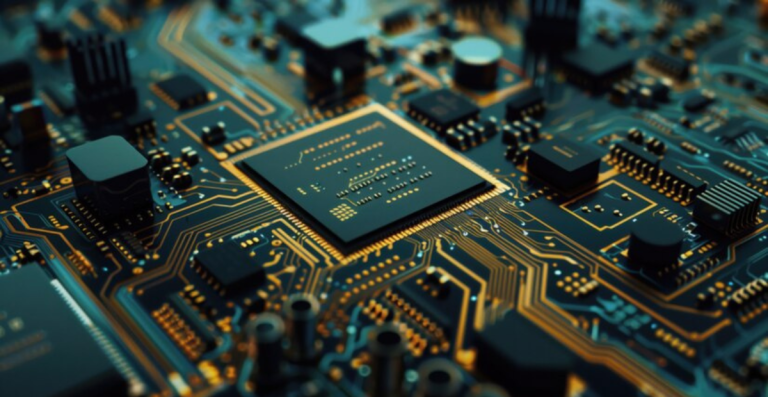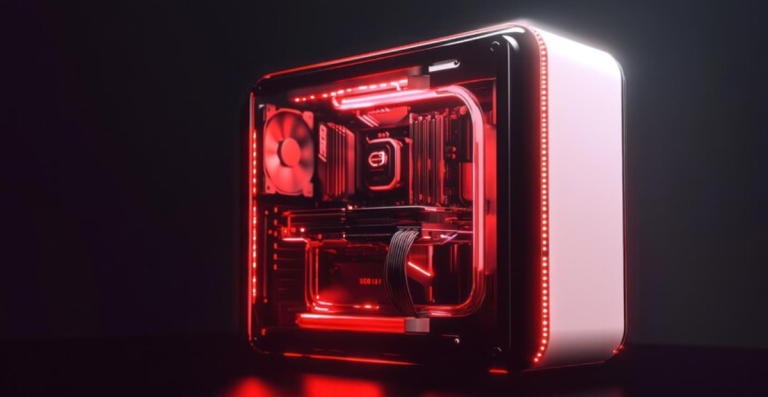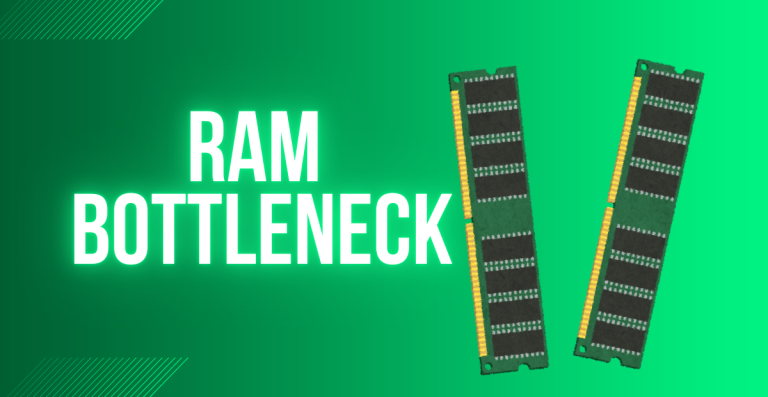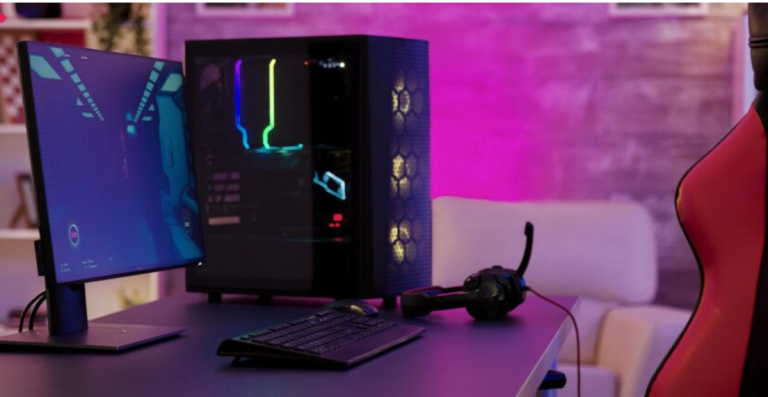Next-Gen Console vs PC Gaming: Where Should You Invest?
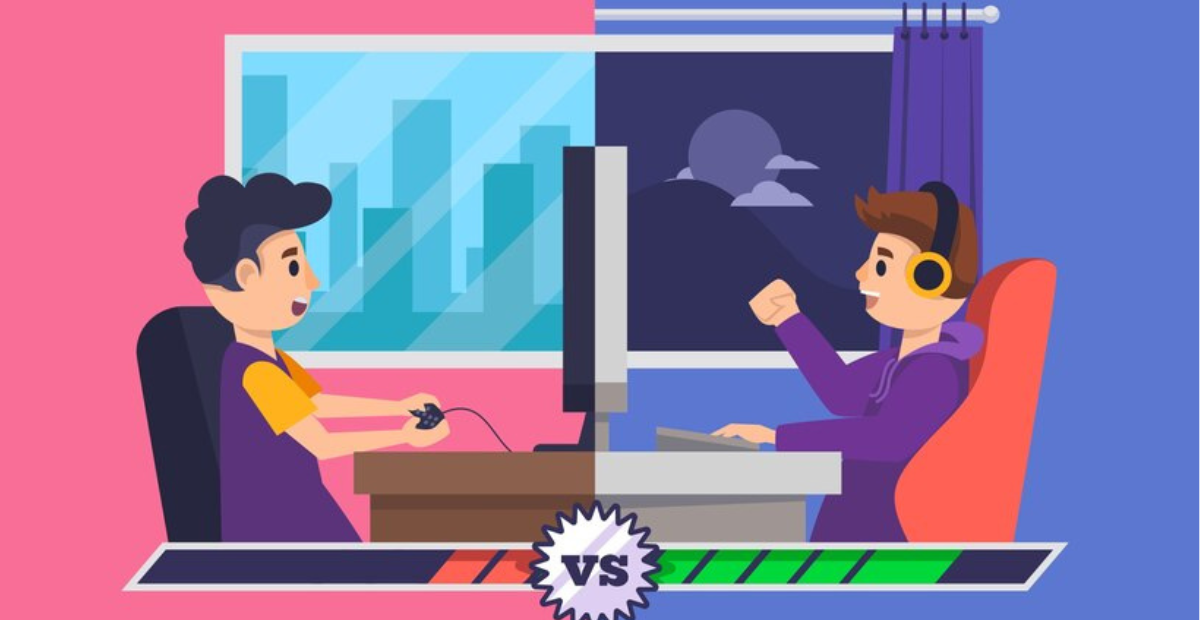
Every gamer faces the dilemma of whether to build (or upgrade) a powerful gaming PC or purchase a sleek new console. Although they serve different priorities, both options become more impressive with each generation. PCs offer cutting-edge graphics and unparalleled versatility, while consoles promise ease of use and exclusive games.
It can be difficult to decide between the PS5’s plug-and-play simplicity and the raw power of an RTX-equipped setup. Long-term objectives, your budget, and even the games you enjoy playing all play a part. The good news? There is no one-size-fits-all solution; instead, you should make a more informed decision based on your top priorities. So, should you spend your money on a gaming PC or a next-generation console? Let us consider the facts.
Advantages of PC Gaming
For serious gamers, PC gaming is known to be the best option. However, what precisely distinguishes it? PC gaming offers several key benefits that make it a favorite for many players:
More Realistic Graphics
One of the biggest draws of PC gaming is the superior visual quality. PCs are often equipped with the latest graphics cards capable of rendering games with incredible detail and realism.
- Unmatched Visual Fidelity
High-end GPUs support advanced technologies like ray tracing, which simulates realistic lighting and shadows to enhance immersion. This technology is still catching up on consoles, but is more widely available and refined on PCs. - Higher Resolutions and Frame Rates
Gaming PCs can push beyond the standard 1080p resolution common on consoles, often supporting 1440p, 4K, or even 8 K. Higher frame rates, such as 60 FPS or more, provide smoother gameplay, reducing motion blur and input lag, key factors for competitive gaming.
Superior Performance
PCs are not only for gaming; they’re powerful machines that handle multitasking with ease. This flexibility makes them ideal for users who want more than just gaming.
- The Power of Multitasking
Unlike consoles designed primarily for gaming, PCs can smoothly run multiple applications simultaneously. This means you can game while streaming music, chatting with friends, or running background tasks without performance drops. - Customizable Hardware
PC hardware is upgradeable, allowing gamers to swap out components like the GPU or CPU over time. This upgrade path lets users keep up with advancing game requirements without buying a completely new system.
Greater Variety of Games
The PC gaming library is vast and varied, often outpacing consoles in sheer numbers and diversity.
- A Vast and Diverse Gaming Library
From blockbuster AAA titles to innovative indie games, PCs provide access to a broad spectrum of gaming experiences. Many indie games launch first or exclusively on PC due to easier development and distribution. - Backward Compatibility
PCs offer extensive backward compatibility, allowing gamers to play titles released decades ago. This compatibility is due to the software nature of PCs, while consoles are limited by their hardware generations.
Modding and Customization
PC gaming is famous for its modding community, which enhances games beyond their original versions.
- User-Created Mods
Players can download mods that improve graphics, add new storylines, tweak gameplay mechanics, or introduce entirely new content. This modding culture extends the life and replayability of many games. - Personalized Experience
Customizable controls, user interfaces, and performance tweaks let players tailor their gaming setup precisely to their preferences, something consoles generally restrict.
Potentially Lower Long-Term Costs
While building a gaming PC often requires a larger initial investment, it can be more cost-effective in the long run.
- Upgrade Rather Than Replace
Instead of replacing an entire console every few years, PC gamers can upgrade individual components as needed, spreading out costs over time. - Digital Sales and Free-to-Play Options
Platforms like Steam and Epic Games Store offer frequent discounts and free titles, making it easier to grow a game library without breaking the bank.
Advantages of Console Gaming
Because of their ease of use, low cost, and optimal performance, consoles continue to be a popular option for many gamers. Consoles, as opposed to gaming PCs, provide a simple plug-and-play experience that is particularly appealing to casual gamers or people who do not want to deal with hardware upgrades.
Beyond their ease of use, though, what makes consoles so alluring?
Simplicity, Ease of Use, and Affordability
The ease of use of consoles is one of their main selling points. All you have to do is plug them in, load a game, and begin playing.
- Plug-and-Play Experience: Users do not have to worry about system requirements or compatibility problems because consoles are already set up and optimized for gaming. Gamers who prefer speedy access without technical hassles will particularly benefit from this.
- Low-Cost Entry Point: Because they are typically less expensive up front than gaming PCs, consoles are more widely available. Consoles provide an affordable way for people who are new to gaming or on a limited budget to enjoy the newest games without having to make a large financial commitment.
Stable and Optimized Performance
Because consoles are built around fixed hardware, developers can create games that are optimized for that particular system.
- Games Designed to Work with Fixed Hardware: By customizing games to run smoothly on console specifications, developers can guarantee consistent frame rates and dependable performance. Even without the best hardware, this optimization frequently produces a fluid gaming experience.
- Hardware Upgrades Are Not Necessary: Consoles do not require users to upgrade components like PCs do. There are no concerns about compatibility or future-proofing because every game is assured to function properly on the device for which it was created.
Bringing Gaming to the Masses: Multiplayer and Social Features
Playing with friends is made simple by consoles that place a strong emphasis on social gaming.
- Local Multiplayer Made Easy: Couch cooperative and split-screen play are supported by Local Multiplayer Made Easy consoles, making them ideal for in-person gaming sessions without the need for additional setup.
- Combined Multiplayer Online Services: Platforms such as Xbox Live and PlayStation Network offer strong online multiplayer, voice chat, and social features, which facilitate global gaming connections.
Exclusive Titles’ Allure
Unique games that are not available anywhere else are frequently found on consoles.
- Fans who desire access to these well-known franchises are drawn to games like Halo on Xbox and The Last of Us on PlayStation because they provide experiences specific to their platforms.
- Controllers improve the console’s comfort and usability.
Wireless Controllers That Are Easy to Use
Controllers improve the console’s comfort and usability. Wireless controllers increase convenience and immersion by enabling gamers to play from the couch or any other cozy location without being connected to the device.
A Gaming PC vs. a Next-Gen Console: The Budget?
Cost is a major deciding factor for the majority of gamers. There are several upfront and long-term financial factors that affect both PCs and consoles. Upgrades, subscriptions, and game prices can add up, even though the initial investment may seem simple. Which one, then, offers you better value for your money?
Initial Investment
Your initial budget will have a big impact on your choice. While consoles offer a lower entry cost, gaming PCs are typically more expensive initially.
- Consoles: Reduced Initial Cost: The average price of a modern console, such as the Xbox Series X or PlayStation 5, is between €400 and €550. You get a fully functional system that requires little setup for that price.
- Gaming PCs: More Expensive at First: The price of a good gaming PC that can perform on par with or better than a console can range from €900 to €1500 or more. This includes a keyboard, mouse, and monitor, which are not always included in the base price.
- Custom-built versus pre-built PCs: Although they need technical know-how, custom PCs can be more affordable. Although pre-built options are easier to use, they frequently cost more for the same specifications.
Ongoing Expenses
The initial investment is not everything. The long-term cost of gaming includes expenses for software, maintenance, and internet access.
- Console Subscriptions Online: The majority of console users pay for services like Xbox Live Gold and PlayStation Plus, which run between €60 and €70 a year. Most PC games do not require this for online multiplayer.
- Prices for Games: Console games frequently have fewer discounts when they first launch at full retail price. On the other hand, regular digital sales on sites like Steam, GOG, and Epic Games are advantageous to PC gamers.
- Improvements and Upkeep: Individual PC components can be upgraded; this is beneficial but may be expensive. Upgrades are not necessary for consoles, but replacements or accessories (such as additional controllers or storage) can still be costly.
Long-Term Cost
In the long run, PCs can be more cost-effective than consoles, especially for gamers who plan ahead and take advantage of digital sales.
- Reduced Price per PC Game: Bundles, sales, and free-to-play options may eventually result in PC gamers spending less per game. Mod support is another feature of many PC games that adds value without requiring additional purchases.
- Component Durability: While new console generations might necessitate a completely new system, a well-built gaming PC can survive for many years with only minor upgrades.
So, Is a PC Better Than a Console?
Almost all gamers eventually have to decide whether to purchase a gaming PC or continue using a next-generation console. Depending on what is most important to you, the answer is not clear-cut. Do you want customization and raw power? Or are exclusive titles and simplicity more your style? Let us take a final look at the factors.
Think About Your Personal Priorities
The “best” platform is totally dependent on your preferred style of play, financial situation, and desired experience.
Do You Play Games Competitively or Casually?
A console might have everything you need, without the hassle, if you mostly play a few games for fun or with friends on the weekends. However, PC offers you more control if you enjoy competitive shooters, high frame rates, or fine-tuned graphics.
Do You Prefer Simplicity or Customization?
With PCs, you can customize almost every element of your setup, including keybindings, visual mods, and hardware specifications. Conversely, consoles are excellent for people who want a gadget that functions immediately.
Which Games Are Most Important to You?
Some of the most popular exclusives are exclusive to Xbox or PlayStation. However, a lot of well-known games particularly independent and esports titles—either make their PC debut or have greater support there.
Both platforms provide amazing experiences.
Both PCs and consoles provide top-notch gaming that can provide hours of enjoyment, despite their differences.
More Accessible Consoles
They are more affordable, simpler to use, and ideal for shared households or families. Multiplayer is easy to use and integrated, and setup takes only a few minutes.
PCs Provide Greater Flexibility and Depth
They are ideal for gamers who like to tinker, want more control over their experience, or use their computer for both work and play.



